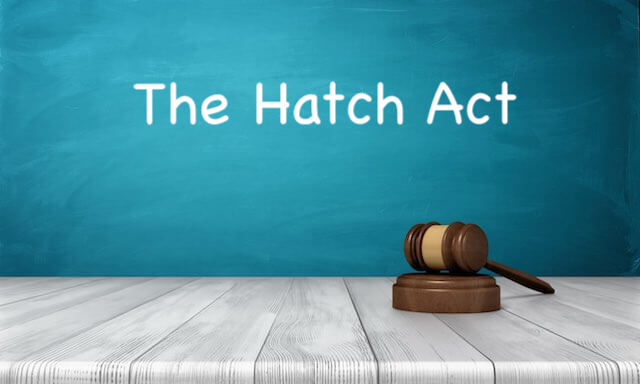It’s that time again: National elections are coming in November. For the federal workforce, this means that the number of employees found in violation of the Hatch Act will go up.
Enthusiasm for a candidate or an issue will overcome individuals who never saw, never read about, or do not remember the periodic announcements issued regarding the Hatch Act and the impact it can have on a federal employee.
Of course, in some cases, a person knew about the restrictions on political activity but ignored the potential consequences. Perhaps it seemed like a good idea to some federal employees while:
- posting their political beliefs while on duty,
- announcing a fundraiser for a candidate while on duty,
- telling a political “joke” while on duty,
- delivering a political chant to members of the public calling a federal agency,
- running for public office and using the agency logo in campaign literature or
- advocating the “Obama Shuffle” (among other activities).
In at least some of these cases, the people violating the Hatch Act had even been warned ahead of time. So, in these cases, they knew about the restrictions, knew the agency was already aware of their actions and probable violations, but forged ahead anyway to espouse their political beliefs. Perhaps they thought their political beliefs were for the “greater good” or that they still would not get caught.
Regardless of their inner thoughts, they got caught and suffered the consequences.
Latest Hatch Act Violation
We are now just several months away from the election. Here is the latest violation of the Hatch Act just announced by the Office of Special Counsel.
A settlement agreement was reached with a federal employee at the Food and Drug Administration (FDA) who admitted violating the Hatch Act’s prohibition against political fundraising.
This case is somewhat unusual in that the FDA employee (who is not named by OSC) first contacted the Office of Special Counsel asking about serving in a leadership position within a political party. According to OSC, this activity was permissible under the Hatch Act.
Having been granted an “okay” for the first part, the employee became more enthusiastic. He authorized a social media page featuring his name and image used to solicit political contributions. At least one of the postings was personally posted by the employee.
And, for good measure, the employee wanted to help his preferred candidate and went the extra mile to help. The employee co-hosted a fundraiser for a candidate for partisan political office and allowed his name to be used in connection with two other political fundraising events.
120-Day Suspension Without Pay
So, having gotten approval for one action, the political enthusiast moved out and received a 120-day suspension for satisfying his urge to be politically active.
In this case, the employee obviously knew about the Hatch Act, admitted that he should have known about the fundraising restrictions when he engaged in the prohibited activity but engaged in political anyway.
In a settlement agreement, the employee agreed to a 120-day suspension without pay.
For more information, check out this list of articles on FedSmith regarding the Hatch Act.



